Most people don’t start drinking alcohol with the intention of developing a dependency. Rather, many turn to alcohol as a way to navigate the pressures and obstacles of everyday life. Some may drink due to social expectations, while others use it as a means to unwind after a long day. Regardless of the reason, alcohol misuse has a starting point—and it often stems from a variety of underlying causes.
Common Causes of Alcohol Addiction

Alcohol abuse and addiction can arise from a combination of emotional, psychological, genetic, and social factors. Here are some of the most prevalent reasons people develop an unhealthy relationship with alcohol:
1. Stress and Overload
Stress is a universal experience, but chronic or overwhelming stress—whether from work, relationships, parenting, or financial strain—can push individuals toward alcohol as a coping tool. Professions with high emotional demands, such as first responders or healthcare workers, are especially vulnerable. Over time, using alcohol to “take the edge off” can spiral into dependency.
Ongoing stress may also disrupt brain chemistry, making the temporary relief from alcohol feel more rewarding and reinforcing the cycle of abuse.
2. Early Exposure to Alcohol
Drinking at a young age increases the risk of developing long-term alcohol problems. Teenagers and young adults who experiment with alcohol often do so without fully understanding its effects. Early alcohol use can impair brain development in areas like decision-making and impulse control, laying the groundwork for future addiction.
3. Mental Health Disorders
Many individuals struggling with anxiety, depression, post-traumatic stress disorder (PTSD), or other mental health conditions turn to alcohol for temporary relief. Unfortunately, alcohol typically worsens these conditions over time, leading to a vicious cycle of self-medication and increasing dependence.
When mental illness and substance use co-occur (known as dual diagnosis), treatment becomes more complex and necessitates integrated care.
4. Mixing Alcohol With Prescription Drugs
Combining alcohol with medications—especially sedatives, painkillers, or antidepressants—can dangerously amplify the effects of both substances. This not only increases the risk of overdose but may also reinforce substance dependency as users seek the intensified effects.
This practice is particularly concerning when individuals are unaware of the interactions between their prescriptions and alcohol.
5. Family History and Genetics
A family history of alcohol abuse increases the likelihood of developing a drinking problem. Genetic predisposition plays a significant role, but environmental influences—such as witnessing heavy drinking or growing up in a chaotic household—can also contribute to maladaptive behaviors and normalized substance use.
6. Social and Environmental Influences
Social factors such as peer pressure, cultural norms, or lack of emotional support can fuel alcohol misuse. Childhood trauma, neglect, unstable housing, and social isolation also make individuals more susceptible to seeking solace in alcohol.
7. Low Self-Esteem and Insecurity
Struggling with feelings of inadequacy, shame, or self-doubt can drive individuals to use alcohol as a way to feel more confident or escape inner turmoil. In social settings, alcohol may seem to temporarily ease insecurity, but long-term use only deepens emotional wounds and dependency.
8. Unresolved Trauma
Experiencing physical, emotional, or psychological trauma—whether recent or from the past—can lead individuals to numb their pain with alcohol. Without therapeutic intervention, trauma survivors often carry unprocessed emotions that fuel substance abuse.
9. Loneliness and Social Isolation
Human beings are wired for connection. When people feel chronically lonely or isolated, alcohol can become a substitute for companionship. Over time, it may become a habitual part of life—used to fill a void or cope with emotional detachment from others.
Alcohol Addiction Treatment in North Andover, MA

If you or someone you love is struggling with alcohol addiction, Luna Recovery for Women is here to help.
Contact us anytime at (855) 943-0472 or info@lunarecoverycenter.com, or visit us at 1270 Turnpike St, North Andover, MA (01845).
Don’t wait—your journey to recovery starts today.


